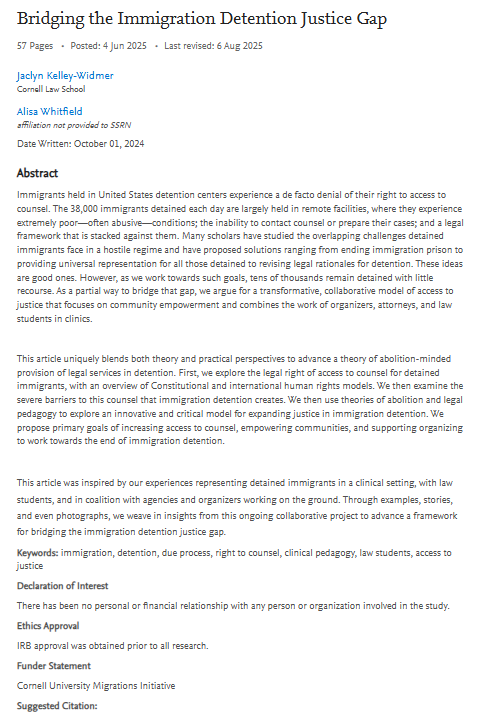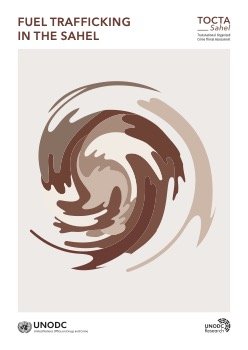By The United Nations Office on Drugs and Crime
Key findings • Hawala is a Money or Value Transfer Service (MVTS) that has been used for centuries, originating in the Middle East and South Asia. It is overwhelmingly used for legitimate purposes, including personal and business financial transactions and for the sending of remittances by migrants and refugees to family members. Cultural preferences, convenience, low-threshold accessibility, low processing fees, reliability, and faster value transfer services are some of the reasons for using hawala, and customers using the service come from all walks of life. • Despite being widely used for legitimate purposes, some attributes of the hawala system also make it vulnerable to use by organised crime for the purposes of transferring illicit funds and values. This includes financial transfers by drug traffickers, migrant smugglers and other criminal actors and organisations, as well as safekeeping of funds obtained from illegal activity. The 113 hawaladars interviewed for this study do not commonly ask about the source of money or the reason for sending and receiving money. Additionally, when they did have doubts about the source of the funds, over half of the interviewed hawaladars reported that they had never refused a hawala transaction. • There is no single global regulatory framework for the hawala system. However, the Financial Action Task Force (FATF) has produced international standards and recommendations for countries to take measures to regulate the hawala system and ensure regular monitoring and compliance. Specific regulations and monitoring regimes vary by country, but FATF recommends countries take a risk-based approach to regulating the hawala system. Of the 18 countries covered by this study, the hawala system was regulated in most of them. However, in four countries it was not regulated, and in Afghanistan – following the events of August 2021 – the current regulatory status of the hawala system is unclear as of the time of writing. • Of the 113 hawaladars interviewed for this report, 43 per cent of hawaladars declared they had a license to operate. In jurisdictions where it is a requirement, 25 per cent operated without a license and 31 per cent preferred not to respond. 36 per cent of the interviewed hawaladars stated that they provided reports to the Central Bank or other relevant financial authorities about their hawala activities, while 64 per cent either had never reported or preferred not to answer the question. Licensed hawaladars collected more personal information from their customers and require identification documents, while for unlicensed hawaladars a name and contact number is sufficient to process a transaction. • Of the hawaladars interviewed in this
study, over one-third reported that they ran multiple branches within the same country and more than half of them reported having offices in other countries. Regular hawala customers are likely to receive a discount on commission charges by hawaladars. • People engaging in regular and irregular migration constitute one customer base of the hawaladars interviewed in this study. Over half of reported that they had migrants as customers. The findings of this study suggest that hawaladars – knowingly and unknowingly - facilitate irregular migration and migrant smuggling by providing multiple financial services including, but not limited to, money or value transfer, safekeeping of funds and introducing migrants and refugees to migrant smugglers. • There are multiple reasons why migrants and refugees would use hawala before, during and after traveling, and these are broadly linked to the features of the system, and, for some, lack of access to any other financial system, such as banks or mobile money services. Migrants and refugees may be directed to a hawaladar by a friend or relative, smuggler, fellow traveller, shopkeeper or accommodation provider. • The interviewed hawaladars identified the following services they provided to migrants and refugees during their journeys: guiding migrants on their journey; helping with finding work upon arrival; referring migrants to support organizations; providing temporary accommodation or referring migrants to an individual who provides temporary accommodation; and finding local medical aid, as undocumented migrants may not be able to or may be reluctant to access hospitals. • Some hawaladars also assist migrants and refugees by finding, recommending or introducing them to a smuggler; and finding or directly renting out boats and trucks for transportation. • The majority of customers using the services of the 113 hawaladars interviewed for this study sent funds to countries located in the Near and Middle East/ South-West Asia sub region, followed by Western and Central Europe and South-Eastern Europe subregions. Customers in the Near and Middle Eastern sub-regions frequently sent funds to hawaladars in most of the eighteen countries where interviews were conducted. Customers of the interviewed hawaladars in the countries of the North American sub-region only sent funds to hawaladars interviewed in Afghanistan, Denmark, Nigeria, Somalia, and the United Republic of Tanzania. • Hawala is widely associated with transferring money or value - this was the most common type of service provided by the sample group in this study. However, sending and receiving money is just one among several financial services hawaladars provide. Cash savings, currency exchange, short-term lending, safekeeping of funds, and trade guarantees were other services the interviewed hawaladars provided to their customers to varying degrees. Some of them safekeep customers’ funds. The amount of funds kept for safekeeping with the interviewed hawaladars ranged from US$ 20,000 to US$ 500,000. • Hawaladars often operate additional businesses alongside their hawala business. Some of the side businesses mentioned by interviewed hawaladars were grocery store, travel agency, selling mobile top-up cards, construction company and electronics shops. • A hawala transaction does not always proceed directly from country A to country B. Depending on the source and destination, sometimes a transaction is carried out through one or more intermediary hawaladars located in at least one other country. Hawaladars interviewed for this study reported that there are multiple hawala hubs located in several regions of the world where such intermediary hawaladars operate. • Hawaladars interviewed in this study reported processing both domestic and international transactions, however, nearly three out of four processed mostly international transactions. The amount of a single hawala transaction varies substantially. Transactions handled by the interviewed hawaladars ranged from as low as US$50 and as high
as US$200,000. To keep a record of these transactions, most hawaladars interviewed in this research reported that they keep a paper (ledger book) as well as an electronic (digital) record of hawala transactions and other services provided. • Hawaladars use a variety of methods to settle their accounts including through cash, reverse transaction, bank transfer or trading in goods and services. Reverse transaction was the most often used method of account settlement among the hawaladars interviewed in this study, followed by settlement through bank transfer. Misuse of the hawala service • In addition to its widespread legitimate use, hawala is vulnerable to misuse by organized crime groups and other criminal actors. More than one-third of the interviewed hawaladars judged the hawala system to be more vulnerable to illegal transactions compared to the formal banking system, while some perceived an equal vulnerability in both systems. A lack of proper oversight by national authorities, a lack of reporting by hawaladars, a lack of regulation, policy, or guidelines for hawaladars to follow, the operation of unlicensed hawaladars, and the closed nature of the hawala system are all potential reasons for vulnerability. • There are no exact estimates as to the extent to which hawaladars, knowingly or unknowingly, facilitate the misuse of their financial services for criminal purposes. Some hawaladars interviewed for this research reported the direct involvement of other hawaladars in transferring funds associated with illegal activities. Additionally, some criminal groups have hawaladars, who may be relatives, working specifically for them for the purposes of transferring funds linked to organised crime. • Several of the interviewed hawaladars reported that they do not ask the purpose of transactions from their customers. As a result, it is possible that hawaladars involved in handling transactions of illicit proceeds are not aware of the nature and source of the money they are transferring or safekeeping. This is particularly the case with hawaladars who are dealing with smaller transactions which usually do not arouse suspicions. However, some hawaladars reported that they could not refuse a transaction from customers connected with Organized Crime Groups (OCGs) due to the risk of negative consequences for themselves and their businesses. • It remains a challenge to precisely document the degree to which hawaladars are transferring illicit funds; it is also difficult to trace illicit financial flows, to separate them from licit flows, and to establish concrete financial links to criminal activities. Law enforcement agencies face challenges in investigating crimes linked to hawala systems, because of the closed nature of the business and, in some cases, the kinship ties of the actors.
Vienna: United Nations Office on Drugs and Crime, 2023. 91p.





















